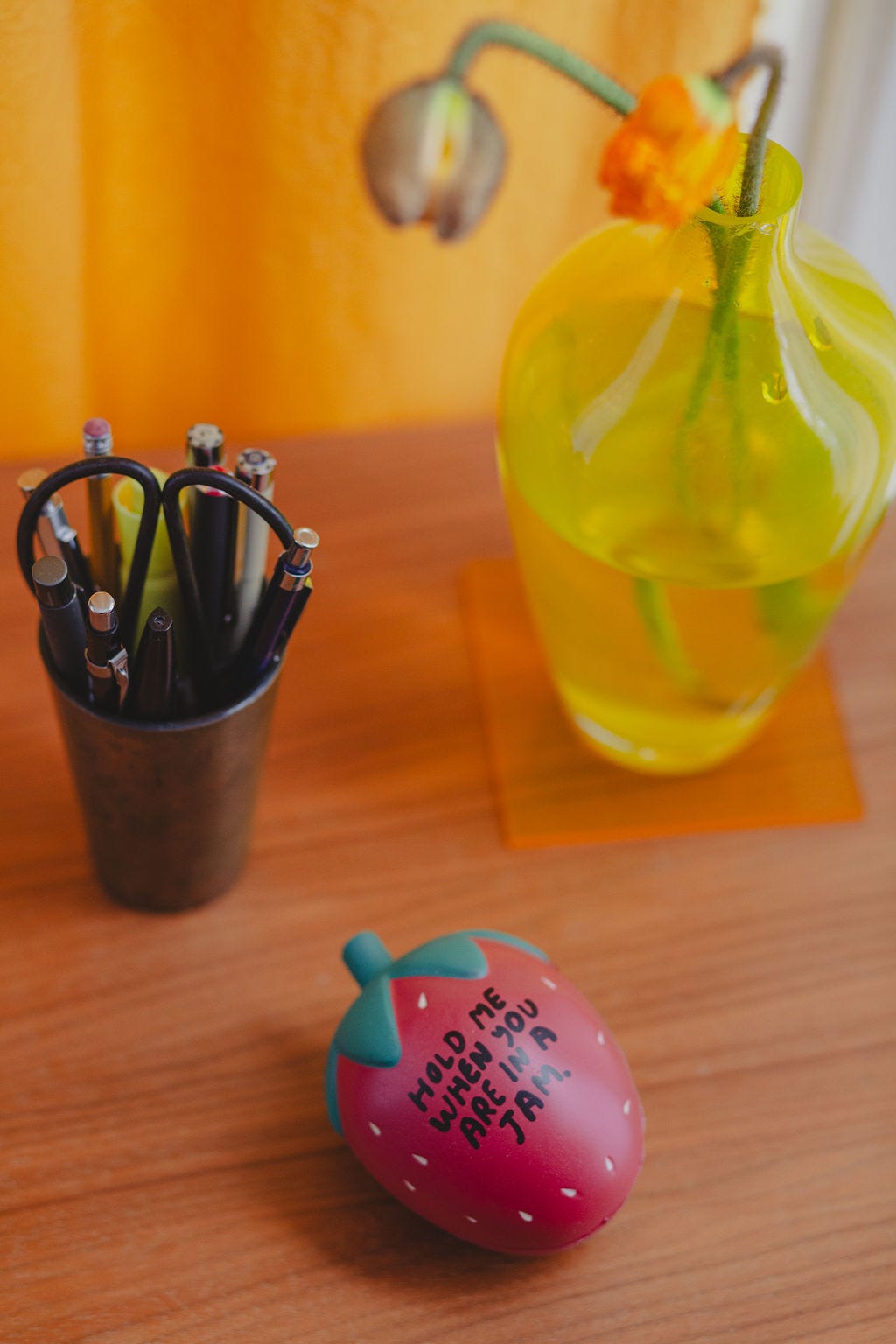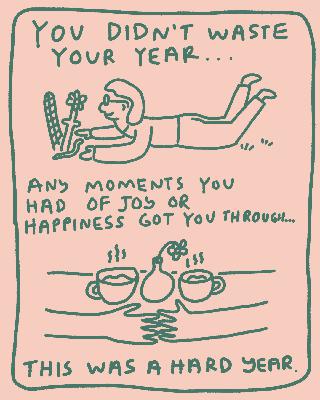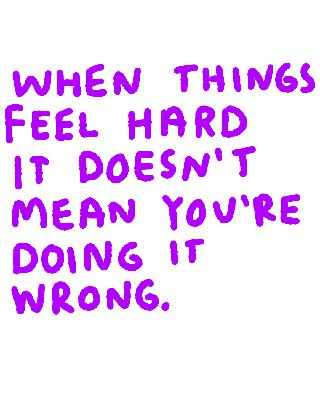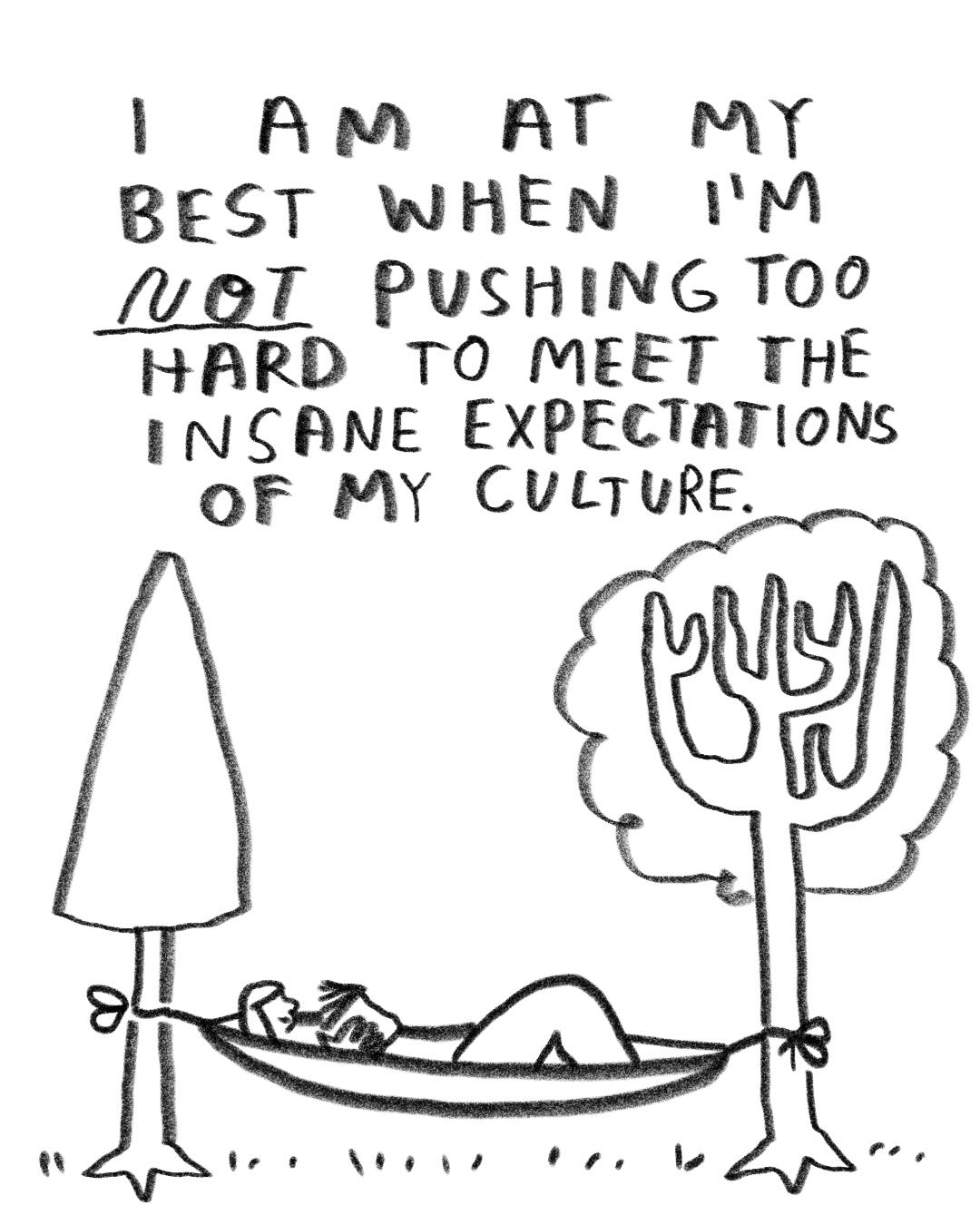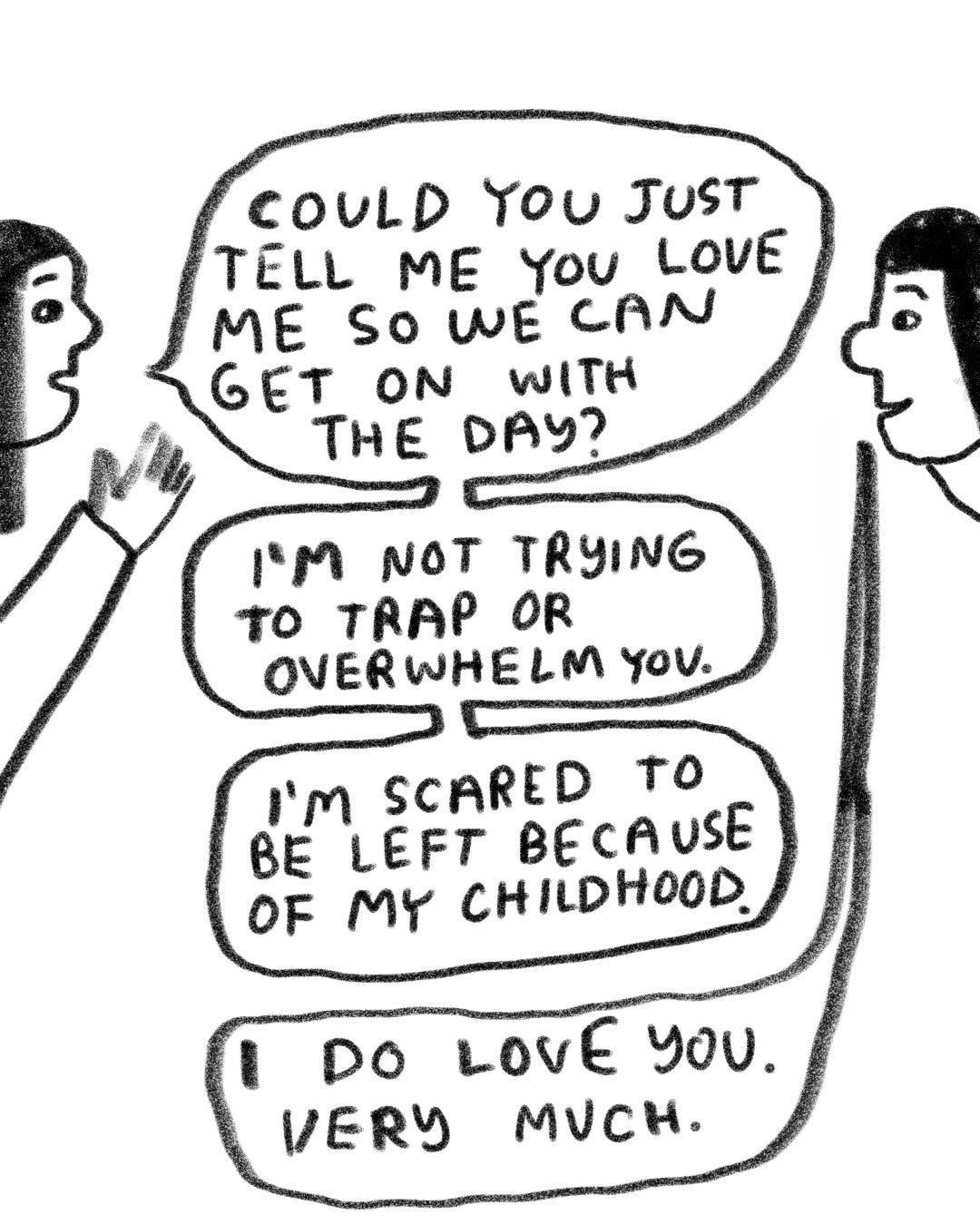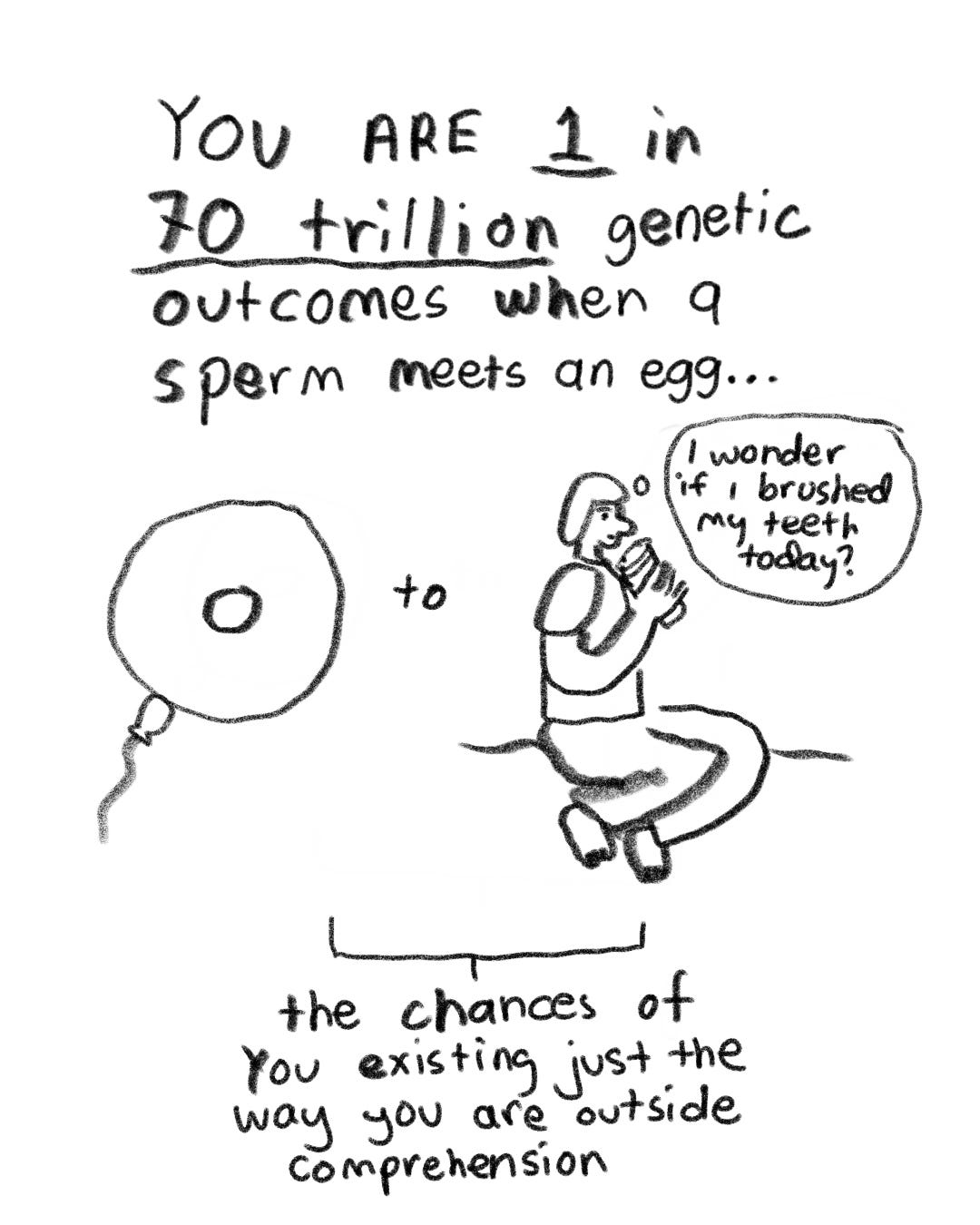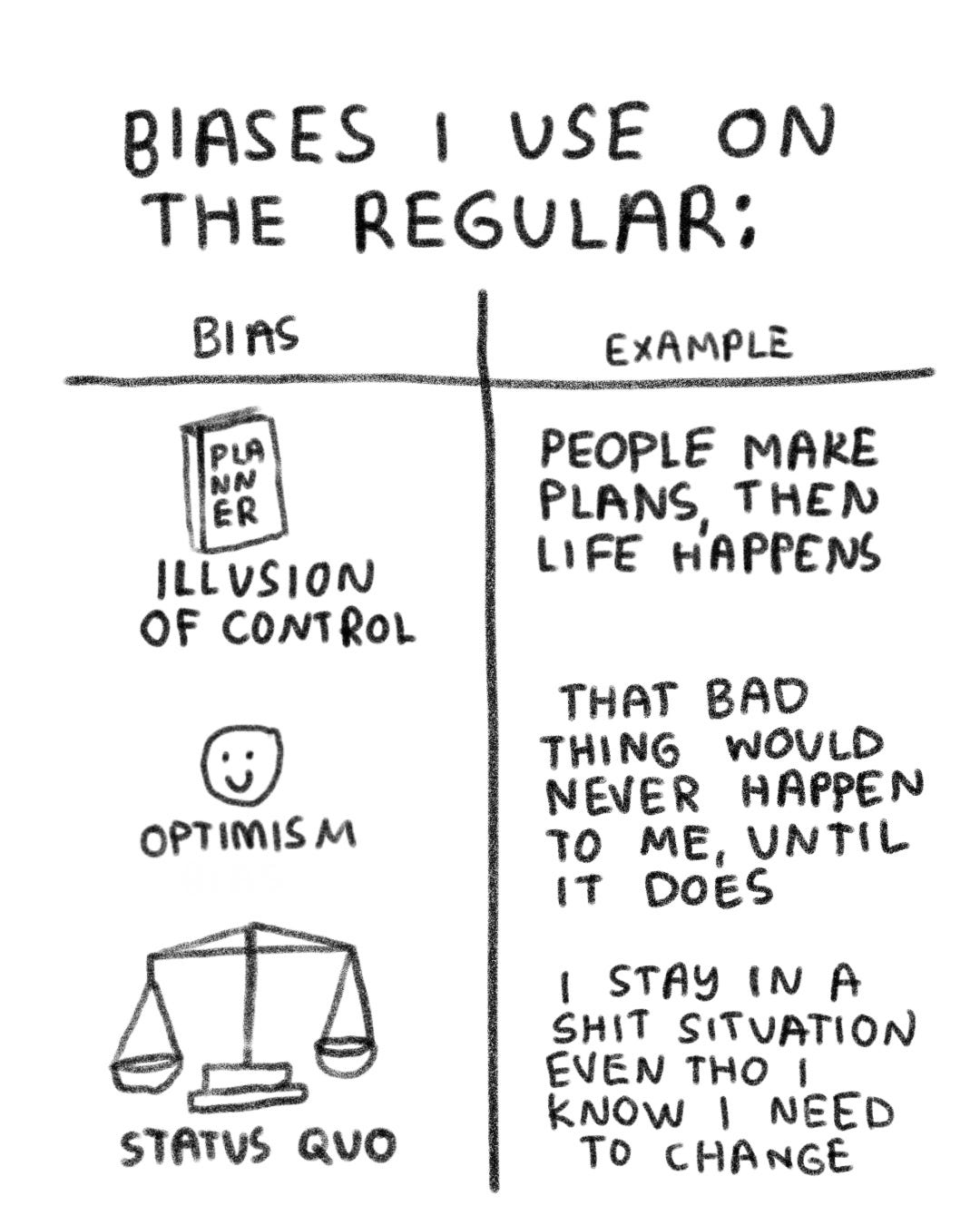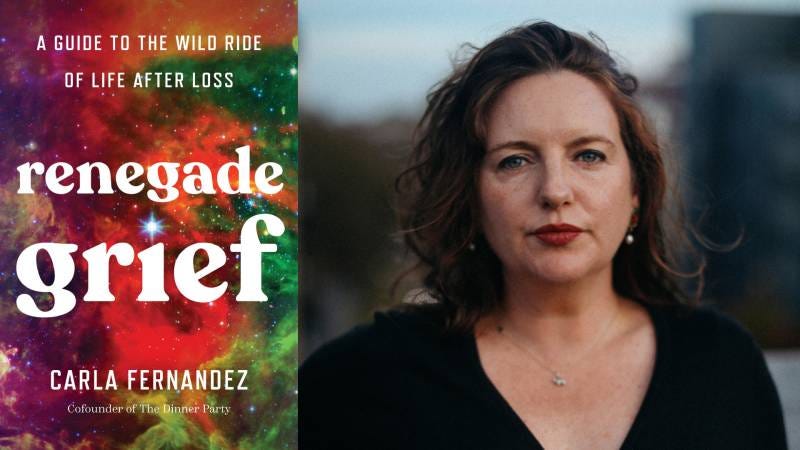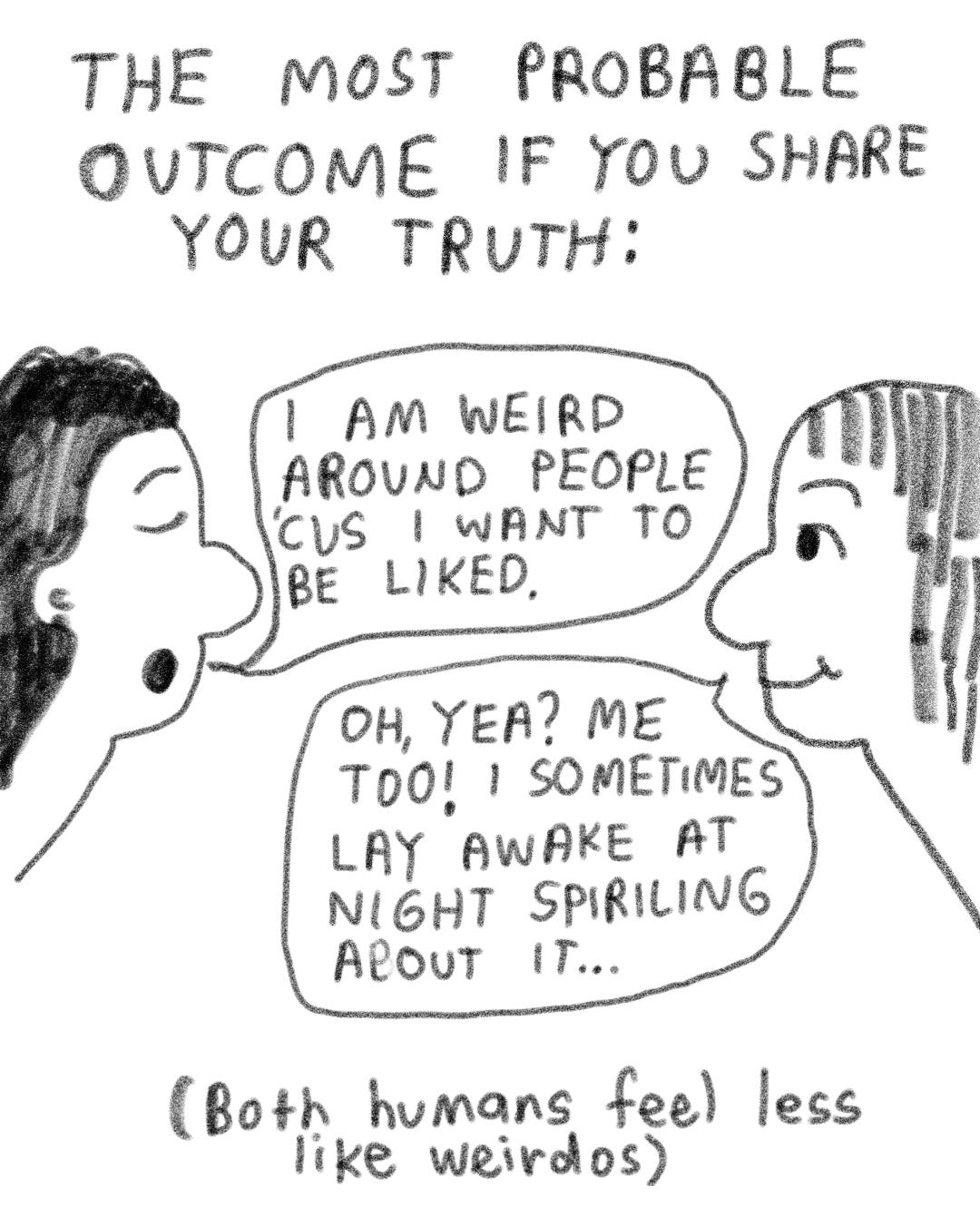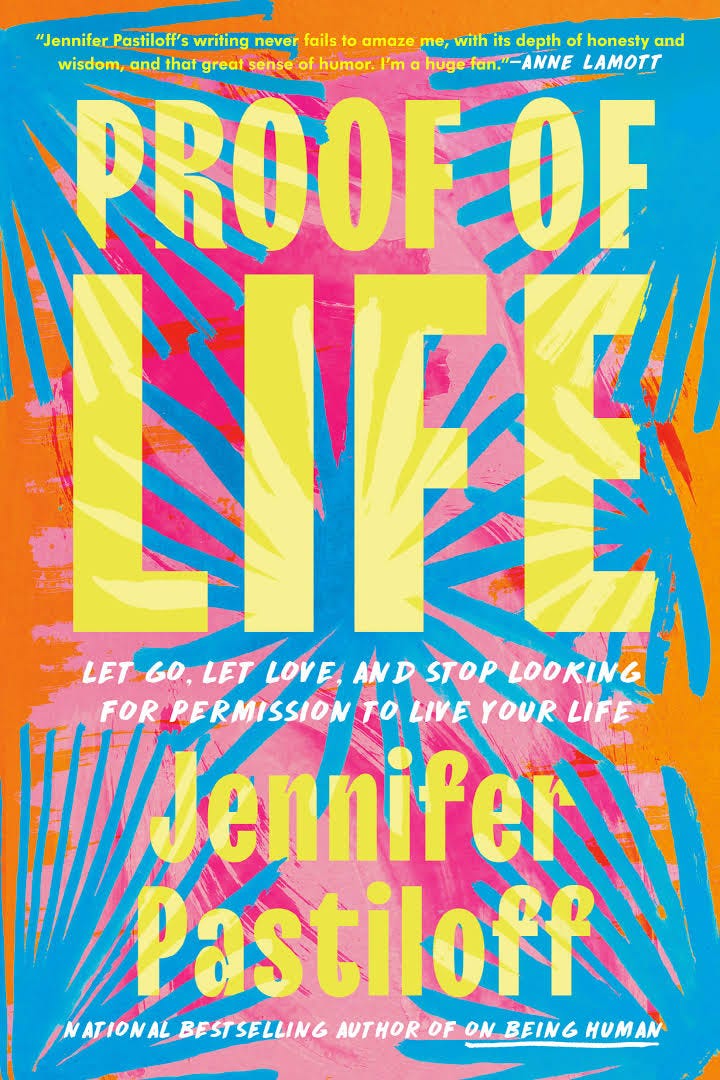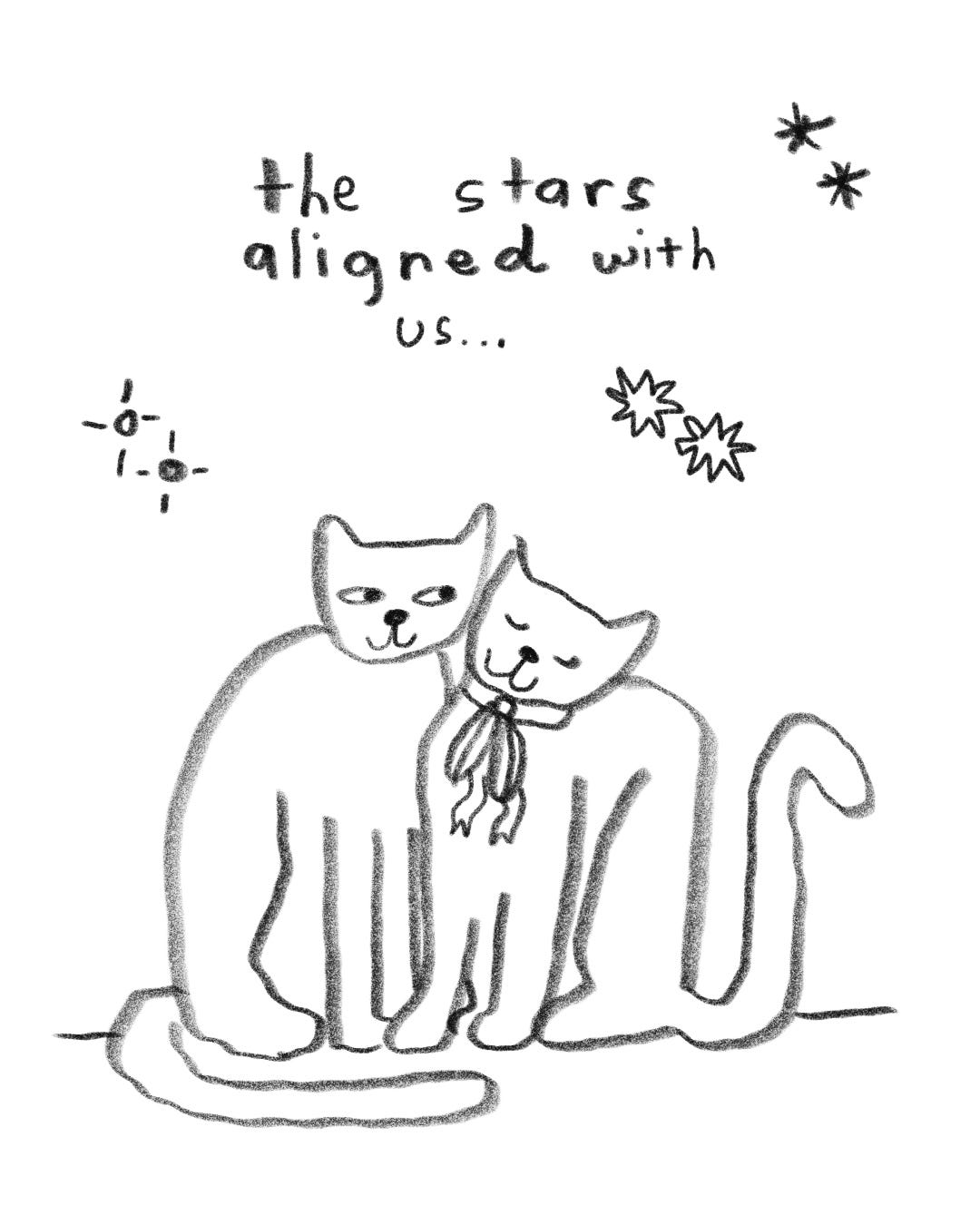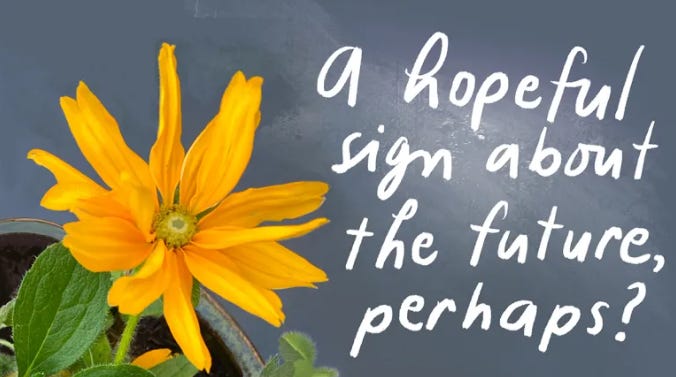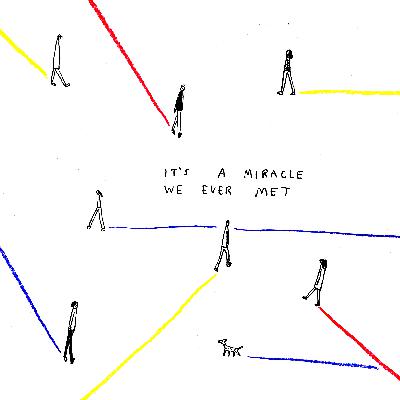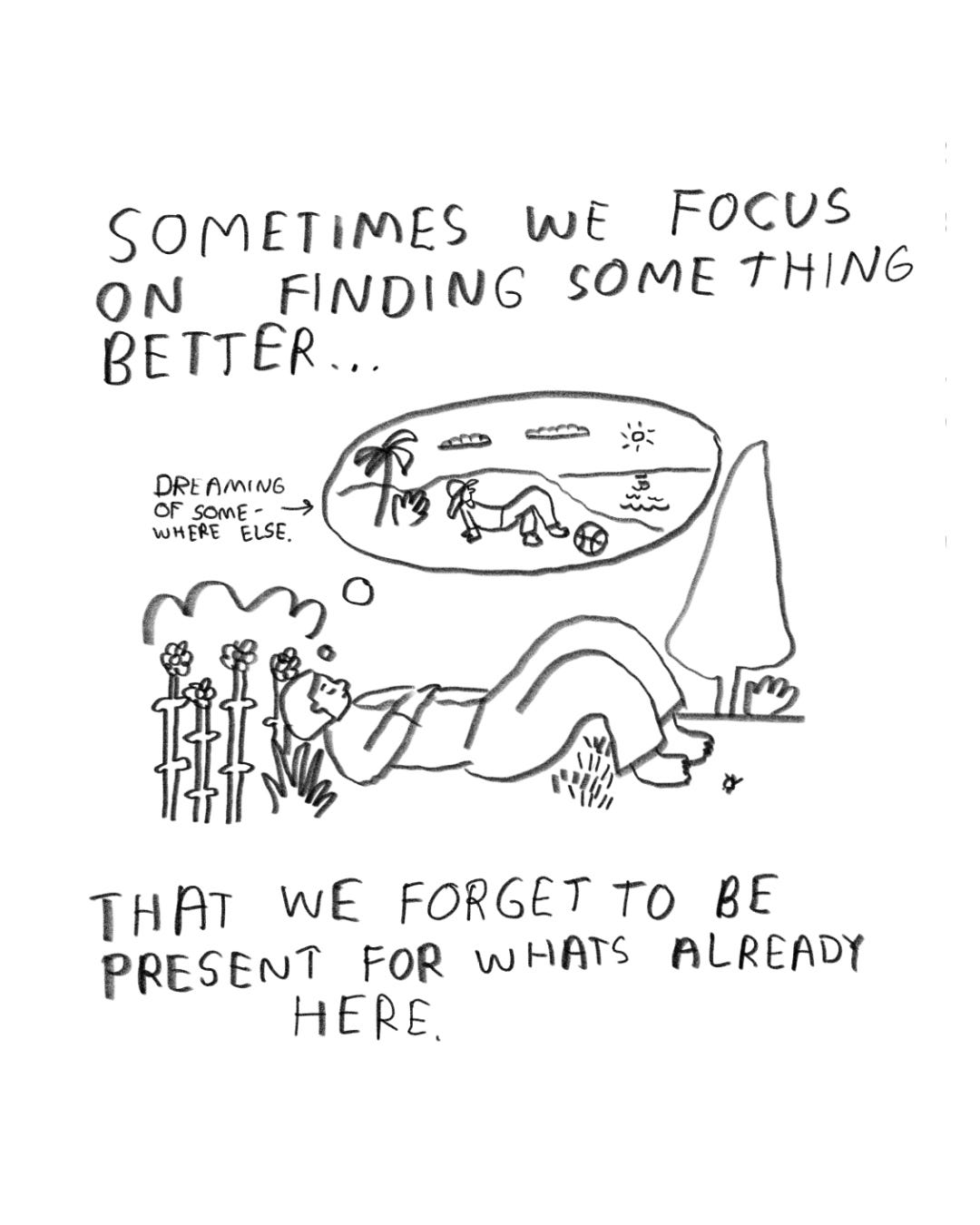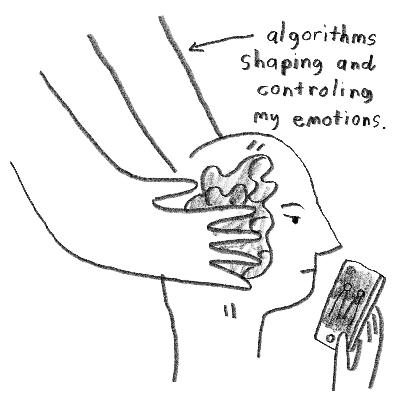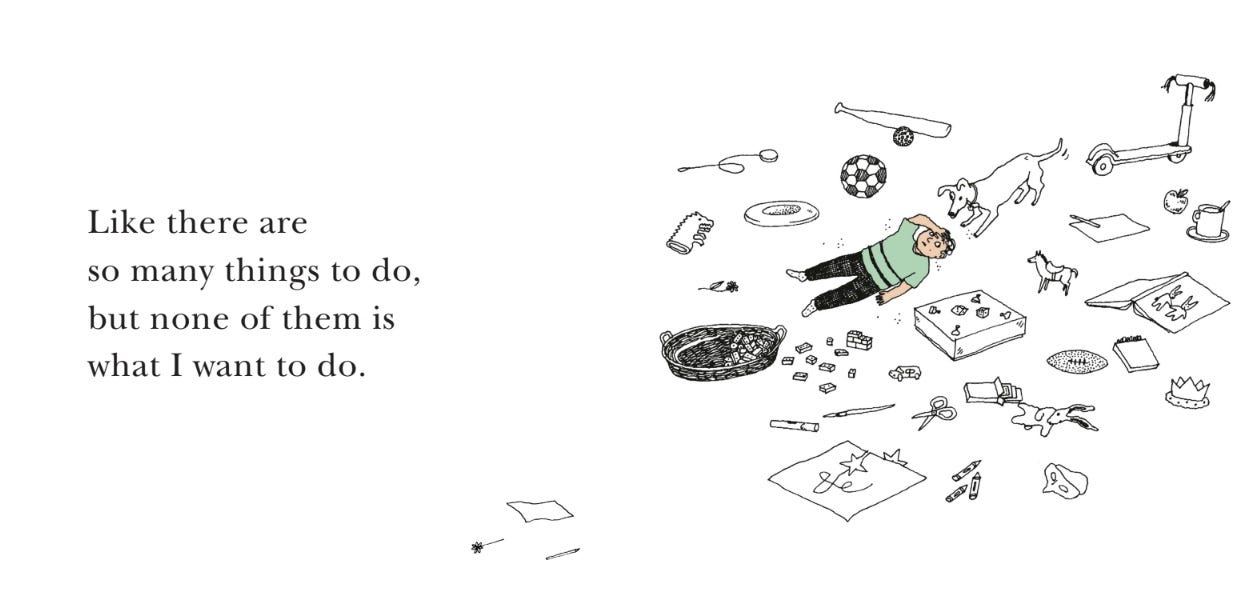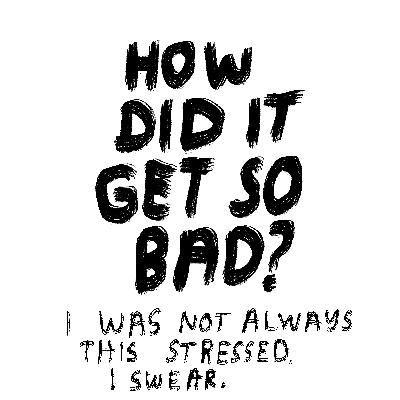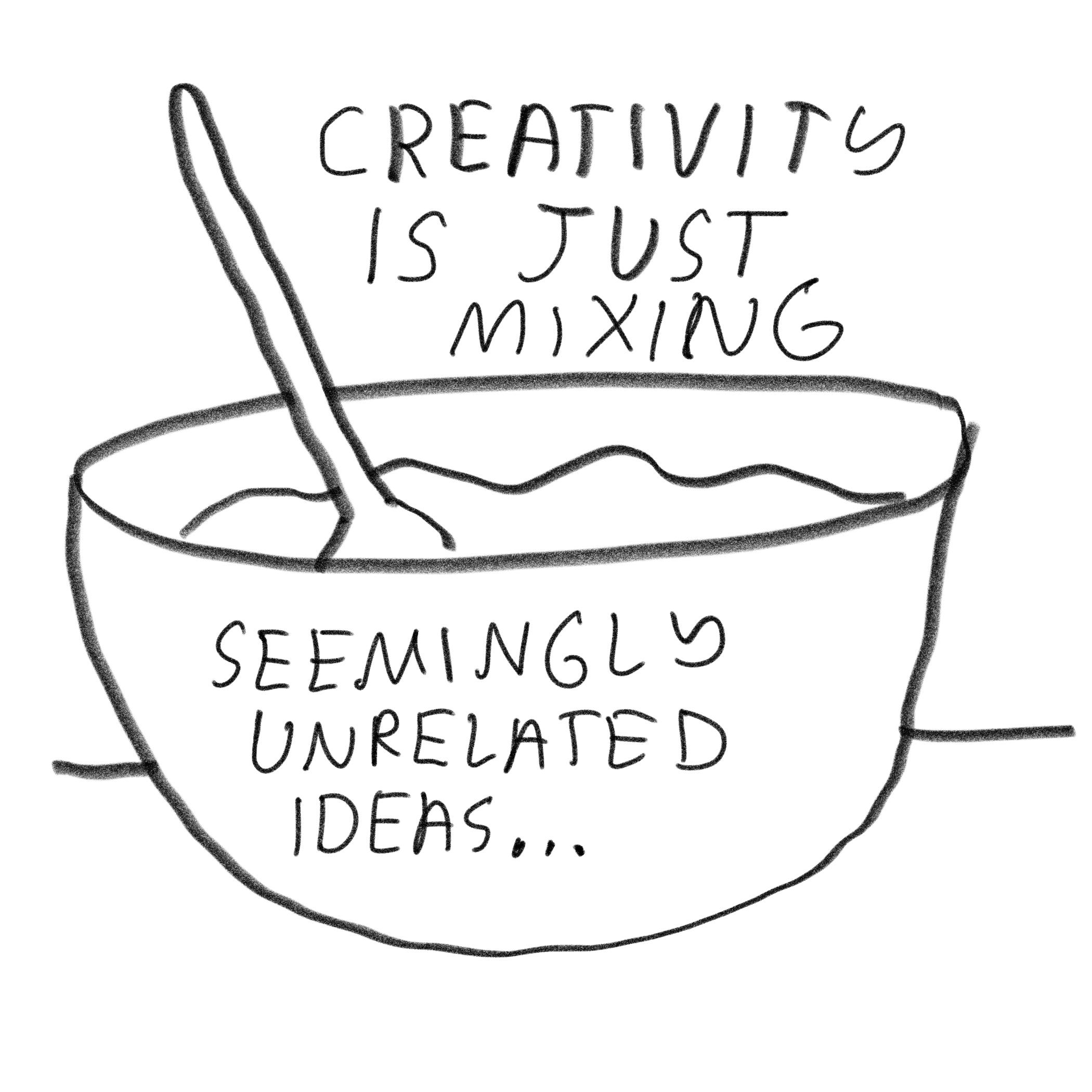Discover BAD AT KEEPING SECRETS
BAD AT KEEPING SECRETS

BAD AT KEEPING SECRETS
Author: looking at secrets to understand why we are the way we are.
Subscribed: 0Played: 2Subscribe
Share
© Carissa Potter
Description
Each week, we invite thought leaders and experts in the fields of art, design and self-help, to talk about their areas of expertise, share a secret and share what is exciting for them.
peopleiveloved.substack.com
peopleiveloved.substack.com
59 Episodes
Reverse
Almost everything will work again if you unplug for a few mintues inclduing you.-Anne LemottHey, it’s Carissa, and this is Bad at Keeping Secrets. Today, we’re diving into something I think we all feel but struggle to name: digital exhaustion. You know that feeling when you’ve been switching between instagram, tictok, email, and three different tabs, and suddenly you’re just... depleted?My guest Paul Leonardi wrote a book called Digital Exhaustion, and we’re going to talk about what he calls the Exhaustion Triad (the real reasons our devices are wearing us down). It’s not just screen time. It’s about attention switching, the cognitive load of constantly deciding which tool to use next, and the emotional weight and anxiety of carrying all this information in our pockets.We’ll also get into practical strategies for digital resilience, how to think about AI, and what it means to be “here, not elsewhere” - especially when you’re juggling worklaod, social ties, and parenting. Check out more of Paul’s research at:www.paulleonardi.comIf you are like me and days go by feeling overwhelmingly busy, and yet you get nothing done or the first thing you do when you wake up is look at your phone, and suddenly feel a sense of dread for the day and still cant kick the habit, this podcast is for you.Send yourself some love and compassion this holiday. This has been a hard year. For everyone. XO, CarissaALSO, the amazing Sophie Odira found me on IG and we both posted almost the same text at the same time! The universe is telling us we all are so tired… Check her out on https://soundcloud.com/sophie-odira-hansing. Her music is beautiful and SO relatable.Send this to your tired friends…PS This podcast is edited and mixed by Mark McDonald, the music is by my very own sister, Officially Quigley, and funded by me (cuz, I like doing this). If you want to support us, and need a last min gift for someone, visit check out our website www.peopleiveloved.com.30% OFF SALE ENDS WEDNESDAY BAD AT KEEPING SECRETS is super happy you found me (carissa) right now… Get full access to BAD AT KEEPING SECRETS at peopleiveloved.substack.com/subscribe
In celebration of darkness, this week I want to revisit my chat with Katherine May, a best-selling author and podcast host, of whom I adore in so many ways. I first heard about her with her book, Wintering: The Power of Rest and Retreat in Difficult Times during the height of the lockdown in 2020. In so many ways, this book helped me let go of control and step back. That there is comfort in resting. I don’t know about you, but I needed permission to use rest as a way to keep going.When I saw she had a new book coming out, I had to talk to her. I do these interviews because I love meeting people and I love sharing ideas that I feel are helpful in defining what it means to be alive in these times. And wow, Katherine does that. First, let me explain the title. For those of you who thought of rainbows and unicorns with this title, sadly, there are not any featured in this book. However, the elements here, are no less filled with wonder and magic. The book is organized around connecting with the Earth, Water, Fire, and Air - giving into the cyclical nature of being.Western culture so often has us working against the seasons, nature, and each other. This leaves us feeling disconnected and often like we are swimming upstream (maybe this is just me? IDK) working against forces that naturally offer soothing moments.I also pretend Katherine is a dictionary, and ask her how she would define terms that I feel like I don’t really have a grasp on even though I have spent my life using them freely. For what seems like forever, I have been trying to make a structure for meaning that reflects the world I have experienced. Perhaps you are doing this too? It feels like a longing for understanding and connection, a search for some truth (all the while knowing there probably is none…).We re-define Enchantment, Rituals, Resilience, and how Katherine sees God in this moment. She, however, pushes back on the idea of fixed definitions altogether. And why it might feel good to feel small sometimes.Sending softness and care your way, love always, CarissaPS This podcast is self-funded by me. Because I love talking to people who I believe in, I am so lucky they say yes. With help from Stephanie Tsou (you rock!!!), Mark McDonald (he helps make people’s podcast dreams a reality) and my lovely sister/soulmate, Officially Quigley did the music. If you like this, it would mean the world if you subscribed. I appreciate you. Get full access to BAD AT KEEPING SECRETS at peopleiveloved.substack.com/subscribe
Hi, it’s Carissa, and this is Bad at Keeping Secrets.For the past few months, when people have asked what I am reading, I have replied a book about a mommune. I swear, everyone I told was interested in hearing more. I’m sitting down with writer Domenica Ruta, author of All the Mothers—a stunning, raw, and deeply human novel about women whose lives intersect in unconventional ways. She created a mommune—mothers raising children, supporting each other, redefining what family, beauty and support can look like inspired by her own life.We talk about what it actually means when we say things will “work out”—and what to do when they don’t.This is about the myths we’ve been sold about the boundaries of friendships and romantic relationships. All The Mothers gives you the agency to expand what is possible for connection and community.Get the book here:If you want to support this podcast, and shop small this holiday season, check out our website peopleiveloved.com. We have cards, journals, and our best-selling ONLY GOOD THINGS Calendar is back in stock. IN OTHER NEWS:* FAMILY UPDATE: We found out that M doesn’t need insulin yet! So we are enjoying our days before that comes into play for us… Diabetes is super common in people who have Cystic Fibrosis. Feeling less depressed about health stuff today. BUT also, she likes shoes. I was never into shoes… but we went shopping for the first time alone together and she wanted to try on all the fancy stuff…* I just finished a mural at a local house in Berkeley. I love it so much I had to share it here:OH my gosh. Thank you so much for listening. And I would love to hear about your ideal way to feel less alone in motherhood:Love, CarissaBAD AT KEEPING SECRETS is so glad you are here. We would love to continue the conversation. Get full access to BAD AT KEEPING SECRETS at peopleiveloved.substack.com/subscribe
Today I’m joined by Jessica Baum, a psychotherapist and the author of Safe: A New Way of Looking at Attachment. Her book comes out next week! I promise you will love it. Or I hope you like it as much as I did.How to Know When to Leave - Part 2 of my conversation with Jessica BaumLately, it feels like everyone is talking about attachment theory. I scroll online through articles and essays about attachment sometimes, curious, half-amused, half-heartbroken. There’s something oddly comforting about realizing how many of us are just trying to make sense of our patterns - to understand why connection can feel both like safety and danger at once. You guessed it, I am an anxious attachment most of the time. Asking myself the question, can I be anxious and worried and feel safe in my relationships?And what it means to actually feel safe in a relationship - not just secure in theory, but calm in the body. Therapist Jessica Baum writes beautifully about this in her book, offering a roadmap for those of us who have spent a lifetime in survival mode. She talks about how attachment wounds - those early, invisible imprints - can shape the way we move through the world. How we seek love, and how we sometimes run from it. What struck me most was her invitation to notice when our nervous systems are leading the way - when we’re in fight, flight, or freeze - and to find small, grounded ways back to trust. It’s not about fixing ourselves or finding the “right” partner. It’s about learning to recognize the moments when something inside us says: this isn’t safe anymore.And maybe that’s the hardest part - knowing when to stay and when to leave.Because secure love isn’t supposed to feel like walking on eggshells or constantly trying to earn your place. It’s supposed to feel like warmth, like ease, like a deep breath. Sometimes, the bravest thing we can do is to stop running from the ache inside us long enough to listen to it.Healing, it turns out, is less about perfection and more about noticing - the small shifts, the moments of calm, the people who make your nervous system sigh in relief. Making a space between the stimuli and our actions. Maybe that’s what we’re all looking for. Not just to be loved, but to feel safe enough to stay - or safe enough to go.This is such a rich conversation, and the second part is my favorite. And a bonus - Jessica has also created some free gifts for you, including a resource on attachment beyond labels and a video conversation with her mentor, Bonnie Badenoch. See you next time.Let’s love, CarissaPS You can find Jessica Baum on Facebook, Instagram and LinkedIn. PPS Our 2026 ONLY GOOD THINGS Calendar is almost sold out! If you want one, here is the link. We are holding out hope for the future and celebrating the cyclical nature of life with our new Only Good Things 2026 Calendar made in collaboration with Goods for the Study.This calendar collects our favorite things for each month, plus moon phases and space for hand-written notes.BAD AT KEEPING SECRETS is a newsletter and podcast where we talk about things. If you found me, maybe it is for a reason? We will probably never know… Get full access to BAD AT KEEPING SECRETS at peopleiveloved.substack.com/subscribe
More Than Love: A Conversation on Grief, Legacy, and Becoming OurselvesThere are some stories that never stop unfolding, they just shift shape as we move through life. This week, I am talking with Natasha Gregson Wagner about her memoir More Than Love. QUESTION: Who expanded your understanding of love? Margaret did for me. Why, I think it was entirely biological/magical.Natasha writes about her mother, Natalie Wood, with such sensory tenderness: the scent of gardenia, the lullabies sung at night, the way love imprints itself through small, ordinary gestures. Listening to her describe those early memories, I kept thinking about how memory is a kind of architecture, built from scent, sound, and touch. It’s how we carry the people we lose. In our conversation, Natasha spoke openly about the long silence that followed her mother’s death, and the slow, private decision to finally tell her story. The memoir isn’t just about setting the record straight, though it does that, but about reclaiming her mother as a whole person: complex, luminous, flawed, human. Writing became a way of making peace with all the versions of Natalie Wood that exist - it could only happen in our current moment of holding all the complexities of personhood. BAD AT KEEPING SECRETS (me, Carissa Potter) wants you to be here:We talked about how grief evolves, how as children, we absorb loss without language, and as adults, we circle back to it with new understanding. For Natasha, motherhood reshaped that journey. She spoke about seeing echoes of her own mother in the way she parents her daughter, and how that reflection brings both ache and comfort. It’s one of the paradoxes of love: the deeper it runs, the more it insists on making room for both presence and absence. What I mean by this is that humans understand and make meaning through contrast - the knowing and not knowing, the living with and living without.There’s a moment in our conversation, where Natasha says she’s learned to hold love and loss together without needing one to cancel the other. That feels like the heart of her story. Whether through writing, filmmaking, or simply living, she’s found ways to let memory breathe, not as something that defines her, but as something that continues to expand her.We also talked about fairness, or rather, the absence of it. Natasha described how, as a child, she believed life was supposed to make sense, and how she’s since learned to live within its mystery instead. Her spiritual path, not unlike my own, reflects a search for grace in a world that doesn’t always offer answers.As we ended our conversation, Natasha spoke about finding her own voice, apart from the legacy she was born into. “I used to think I had to live up to something,” she said. “Now I just want to live from something, from truth, from love, from my own story.”It struck me that More Than Love isn’t only a title, or a feeling, it’s a direction. A way of saying there’s always something beyond what we think love is. Something that carries us forward, even when we think we’ve reached the end and understand it all.Next week, Natasha and I will host a workshop on grief and resilience in Marin with Happy Women Dinners. It’s a gathering for anyone walking through loss or transformation, or just wants to hang out and talk about hard stuff. We’ll share our own stories, hold space for others, and explore what it means to live fully while holding the weight of what’s been lost.Share this with someone who is navigating the loss and love of a parent or child who might relate and feel less alone…I am not going to pretend to know what healing is, but it could be: not erasing the past, but learning how to walk with it, gently, openly, and with love. To wake up each morning, connect with other humans and go to bed each night. To seek out the people who push your understanding of love to be more than what it once was. XO, CarissaPS I break down a few times during this podcast over M’s health issues - I am not the best interviewer but Natasha was so kind and offered me the support of a good friend, for which I am so grateful. PPS RSVP for our day event Oct 19th from 10-4pm to jill@happywomendinners.com Get full access to BAD AT KEEPING SECRETS at peopleiveloved.substack.com/subscribe
Today I’m joined by Jessica Baum, a psychotherapist and the author of Safe: A New Way of Looking at Attachment. In our conversation, Jessica opens up about her own journey from anxious attachment to a place of safety, and she helps us explore the deeper forces that shape our relationships: from the hemispheres of the brain and implicit memories, to the ways our bodies hold trauma and longing. Together, we look at how “little me” (the younger parts of ourselves) influence patterns we repeat, and how becoming conscious of those patterns can transform not only our relationships but the way we show up in the world.We also talk about the importance of community, the power of rupture and repair in intimacy, and how building emotional anchors can help us feel held and supported - even in the hardest moments. Jessica shares so much wisdom, from neuroscience to lived experience, all with the invitation to see ourselves as evolving, spiraling beings who are always capable of deeper safety and connection.This is such a rich conversation, we actually decided to release it in two parts. And a bonus - Jessica has also created some free gifts for you, including a resource on attachment beyond labels and a video conversation with her mentor, Bonnie Badenoch. Find Jessica on Facebook, Instagram and LinkedIn. Thanks for being here with me. Sending love, Carissa Get full access to BAD AT KEEPING SECRETS at peopleiveloved.substack.com/subscribe
Before we start I just wanted to invite you to come hang with Ruthie Ackerman and I at Womb House Books on Wednesday, September 24 · 6:30 - 8:30pm PDT. It is a small gathering where we will do some exercises from my book, and have some time to explore motherhood and ambivalence, together. Space is limited, sign up here! It’s free. We just want to make a space to talk about these things if they are lingering on your mind too. For the longest time, I believed I’d just know whether I wanted to be a mom. Like a bolt of clarity would strike. But the truth is, I didn’t know. Not really. And for a long time, I thought I had to choose—between being an artist and being a mother. But here’s the thing: I’m greedy. I want both.And I think I’m not alone.The world doesn’t make much space for the in-between—the questions, the ambivalence, the complexity of redefining what motherhood can look like. There's pressure to decide, to know, to fit within timelines and expectations. But what happens when we don’t? What happens when we still don’t know, even as time presses on? At 42 I am still trying to reconcile what the “right” thing is for my life and have come to terms with I will probably never really know. This week, I sat down with the writer Ruthie Ackerman to talk about her new book, The Mother Code. Reading it was like having someone reach into my head and put my most private, unspoken thoughts onto the page. Ruthie names the tension so many of us feel—the biological clock ticking louder with each year, the internal tug-of-war between art and family, freedom and rootedness. We talked about:* Maternal ambivalence, the not being 100% sure if you want kids—how common it is, and how rarely we talk about it* Redefining family narratives and how the women who raised us shape what we imagine for ourselves* The desire to do life/motherhood differently—even when we don’t know what “different” looks like* What is enoughness in life? Specifically, how delusional we are in romantic relationships. Ruthie’s honesty cracked something open for me, and I think it will for you too. Whether you’re a parent, never want kids, feel unsure, or just love real conversations about the messiness of personhood, this episode is for you. I’m so excited to share this one with you. I hope it resonates as deeply with you as it did with me. If you know someone who is feeling ambivalent about life, motherhood, and art, I would be delighted if you shared this with them…With love and curiosity,CarissaPS Grab a copy of The Mother Code here. And I am a die-hard fan of Ruthie’s substack here:PPS Bad At Keeping Secrets is a podcast by Carissa Potter (me). The audio was produced by Officially Quigley, and the sound editing was done by Mark McDonald. Mark helps people start podcasts, and I highly recommend him if you have been thinking about starting one. You can sign up for a free meeting with him here.BAD AT KEEPING SECRETS is a podcast I do because I love doing it. Thanks for finding it. And getting up this morning. You rock. Get full access to BAD AT KEEPING SECRETS at peopleiveloved.substack.com/subscribe
What if you had a magic 8 ball… but it actually knew you? And instead of spitting out “Ask again later,” it handed you a question so sharp, or so tender, that you couldn’t help but see yourself differently.Today, I’m talking with designer and author Vicki Tan about her new book, Ask This Book a Question. It’s part fortune-teller, part behavioral science, and part mischievous friend who calls you out just enough.We talk about how she decided which questions made the cut, the biases and stories that shape how we see the world, and how to make decisions that actually line up with your values. We’ll get into psychic moments, Google searches, and whether a question itself can be a comfort, or even a kind of prayer.If you’ve ever wished for a guide to help you choose, change, or just sit with the uncertainty, you might find it here. And don’t worry - this book won’t tell your secrets. It’ll just ask you better ones. Sending love, CarissaGet your copy of ASK THIS BOOK A QUESTION at your favorite bookstore or here.PS I’m doing a brunch with Happy Women Dinners next month! Sunday, September 7th, noon to 2pm at a private home in the Oakland Hills.To reserve a seat, email jill@happywomendinners.com. The ticket ($150) includes a signed copy of Breathe Through It, a delicious brunch, a Q&A with me and Tara Schuster, and some hang time with other women.PPS Bad At Keeping Secrets is a podcast by Carissa Potter (me). The audio was produced by Officially Quigley, and the sound editing was done by Mark McDonald. Mark helps people start podcasts, and I highly recommend him if you have been thinking about starting one. You can sign up for a free meeting with him here. Get full access to BAD AT KEEPING SECRETS at peopleiveloved.substack.com/subscribe
Hi. It’s Carissa and this is bad at keeping secrets. How do you feel sad? What does grief look like? This week I have the pleasure sit down with Carla Fernandez to talk about something we all carry but don’t really know how to hold: grief. Her book, Renegade Greif, demands space for loss, offering tools, rituals, and language for navigating our sadness in a world that too often tells us to move on. If you’re yearning for a way to work with your sorrow, or just need permission to feel, this conversationis for you.Grief isn’t something we get over. It’s something we move with, slowly, awkwardly, and sometimes beautifully. In today’s conversation, I sit down with Carla, co-founder of The Dinner Party and a renegade in the world of grief work. Together, we explore the ways grief shapes us, not just emotionally, but biologically. We talk about the awkwardness of support, the quiet power of altars, the strange rituals that help us stay human, and the long, looping journey (I hate this word but it is what came to mind) of learning to live with loss.This episode is for anyone who's ever wondered if they're grieving the “right” way, anyone who’s been asked to show up for someone else when they were breaking inside, and anyone trying to find meaning in the mess.Grief isn’t linear. But community, ritual, and honest conversation? They help.What do you do that helps you get through the day? Carla has so lovingly rallied this ritual collection for you. In case you need a place to start. Her book, Renegade Grief, is a much more expansive version…With love, CarissaPS I’m doing a series of events with Happy Women Dinners in the Fall— one in the SF Bay Area and one in Los Angeles. To reserve a seat, email jill@happywomendinners.com. The ticket ($150) includes a signed copy of Breathe Through It, dinner/brunch, a Q&A with me and Tara Schuster, and some hang time with other women.SAN FRANCISCO: Sunday, September 7th, 12pm-2:00pm (private home in the Oakland Hills)LOS ANGELES: Thursday, October 23rd, 6:30pm-8:30pm (private home in Encino)There will be other events to come!PPS Bad At Keeping Secrets is a podcast by Carissa Potter (me). The audio was produced by Officially Quigley, and the sound editing was done by Mark McDonald. Mark helps people start podcasts, and I highly recommend him if you have been thinking about starting one. You can sign up for a free meeting with him here. Get full access to BAD AT KEEPING SECRETS at peopleiveloved.substack.com/subscribe
Need permission to share your story? This episode is for you.This week, I talk with psychologist and author Dr. Jessica Zucker about grief, vulnerability, and her new book Normalize It.Got something you’re spiraling on? If you’re human, you probably do. In Normalize It, Dr. Zucker makes a powerful case for speaking up, and offers a framework for how to actually do it. I first found her work when I was navigating pregnancy loss, her book I Had a Miscarriage talked me through it, gently. Since then I have gifted it to all the people in my life dealing with this weird loss that often goes unspoken.Jessica shares her own story of pregnancy loss, and how it shaped her career and her capacity for truth-telling. We both believe in the power of vulnerability, and in creating things that help people feel less alone.What is something you are wanting to talk about? I will be here with you…The audio is in the post. Listen when you’re walking, folding laundry, or hiding in the bathroom from your children. With love & scraps of hope,CarissaPSPPS I’m doing a series of events with Happy Women Dinners in the Fall— one in the SF Bay Area and one in Los Angeles. To reserve a seat, email jill@happywomendinners.com. The ticket ($150) includes a signed copy of Breathe Through It, dinner/brunch, a Q&A with me and Tara Schuster, and some hang time with other women.SAN FRANCISCO: Sunday, September 7th, 12pm-2:00pm (private home in the Oakland Hills)LOS ANGELES: Thursday, October 23rd, 6:30pm-8:30pm (private home in Encino)There will be other events to come!PPPS Bad At Keeping Secrets is a podcast by Carissa Potter (me). The audio was produced by Officially Quigley, and the sound editing was done by Mark McDonald. Mark helps people start podcasts, and I highly recommend him if you have been thinking about starting one. You can sign up for a free meeting with him here. Get full access to BAD AT KEEPING SECRETS at peopleiveloved.substack.com/subscribe
Proof of Life. Proof of Enough.This week, I had the joy of talking with Jennifer Pastiloff, bestselling author of On Being Human, about her powerful new book Proof of Life — and wow.This book is a reminder that being messy, tender, and still here is more than enough. It’s a kind of miracle.Lately, I’ve been giving small bundles — fresh food, flowers, a handwritten note — and realizing they’re really just that: proof of life. A way to say, “I see you. You’re already enough.”Jennifer’s book is that, too. Honest, funny, raw, and deeply alive.👉 Pre-order Proof of Life here or check out her upcoming book events here.Trust me — you’ll want to read it. It made me just feel good. I hope it makes you feel something, anything, and let that be enough.With love, Carissa Get full access to BAD AT KEEPING SECRETS at peopleiveloved.substack.com/subscribe
Hi, it’s Carissa, and this is Bad at Keeping Secrets. Are you an anxious person? I am. So when I saw the headline “This book is for anxious women,” I had to get it.I feel oddly calmed and understood by the complex social dynamics of Curtis Sittenfeld. It is almost like she is in my head in the moments of cringe when I find myself saying the exact wrong thing for the moment I am in. In our conversation, we talk about the actual equation for being a creative success, the role of luck in our lives, and how to navigate complex social dynamics. Her new collection of short stories focuses on exploring mid-life through overturning our beliefs about ourselves and the events that define us. Show Don’t Tell is a celebration of enduring friendship. It made me think about how the friends in my life show up for me and how I want to show up for them. You know, the people who you can be yourself all the time? The friends who show up when you get a difficult diagnosis. Or have a bad day. After reading, I felt the desire to reach out to the people in my life. To dig into each other’s lives becuase there is nothing else more interesting (to me atleast). Share this post with your bestie…I felt this weird pull towards Curtis in this interview, almost like I longed to be in her life, and I didn’t want our conversation to end. She is a master storyteller. When I re-listened to our interview, I felt this giddy joy, the joy that comes from almost a crush. There are lots of secrets—I hope you enjoy.Sending love, CarissaPS Both Curtis and I have direct ties to Minnesota. My heart goes out to everyone there in their shock and grief. I just don’t understand. Something I will say, is that I am taking comfort in lowering the “horizon line.” I am reaching out to the people close to me, calling my congress members, going to small gatherings, and smiling as often as I can. When I feel overwhelmed with the terror and horror of the world as I understand it, I recommend this portal for hope.PPS Bad At Keeping Secrets is a podcast by Carissa Potter (me). The audio was produced by Officially Quigley, and the sound editing was done by Mark McDonald. Mark helps people start podcasts, and I highly recommend him if you have been thinking about starting one. You can sign up for a free meeting with him here.PPPS My book is OUT. Get your copy here. Or from your local bookstore. I am so grateful to be able to do things that make me feel like I have a purpose in this life. Get full access to BAD AT KEEPING SECRETS at peopleiveloved.substack.com/subscribe
Wanting Both: Motherhood, Art, and the Questions That LingerHi, it's Carissa, and this is Bad at Keeping Secrets.For the longest time, I believed I’d just know whether I wanted to be a mom. Like a bolt of clarity would strike. But the truth is, I didn’t know. Not really. And for a long time, I thought I had to choose—between being an artist and being a mother. But here’s the thing: I’m greedy. I want both.And I think I’m not alone.The world doesn’t make much space for the in-between—the questions, the ambivalence, the complexity of redefining what motherhood can look like. There's pressure to decide, to know, to fit within timelines and expectations. But what happens when we don’t? What happens when we still don’t know, even as time presses on? At 42 I am still trying to reconcile what the “right” thing is for my life and have come to terms with I will probably never really know. This week, I sat down with the writer Ruthie Ackerman to talk about her new book, The Mother Code. Reading it was like having someone reach into my head and put my most private, unspoken thoughts onto the page. Ruthie names the tension so many of us feel—the biological clock ticking louder with each year, the internal tug-of-war between art and family, freedom and rootedness. We talked about:* Maternal ambivalence, the not being 100% sure if you want kids—how common it is, and how rarely we talk about it* Redefining family narratives and how the women who raised us shape what we imagine for ourselves* The desire to do life/motherhood differently—even when we don’t know what “different” looks like* What is enoughness in life? Specifically, how delusional we are in romantic relationships. Ruthie’s honesty cracked something open for me, and I think it will for you too. Whether you’re a parent, never want kids, feel unsure, or just love real conversations about the messiness of personhood, this episode is for you. I’m so excited to share this one with you. I hope it resonates as deeply with you as it did with me. If you know someone who is feeling ambivalent about life, motherhood, and art, I would be delighted if you shared this with them…With love and curiosity,CarissaPS Grab a copy of The Mother Code here. And I am a die-hard fan of her substack here:PPS Bad At Keeping Secrets is a podcast by Carissa Potter (me). The audio was produced by Officially Quigley, and the sound editing was done by Mark McDonald. Mark helps people start podcasts, and I highly recommend him if you have been thinking about starting one. You can sign up for a free meeting with him here.PPPS I have a book that is coming out SO SOON. Pre-order sales are crucial for helping us understand if there's interest in the book. If you’re able, please consider preordering your copy here.BAD AT KEEPING SECRETS is a podcast I do because I love doing it. Thanks for finding it. And getting up this morning. You rock. Get full access to BAD AT KEEPING SECRETS at peopleiveloved.substack.com/subscribe
Hi, it's Carissa, and this is Bad at Keeping Secrets. Before I had a kid, my garden was my holy place. Still is, just things are a little more wild now.This week, I talk with Debbie Millman from Design Matters about her book Love Letter to a Garden—a quiet, beautiful reflection on what it means to grow something, and to be changed by it. That gardening offers us relief and connection in the face of uncertainty.We talk about love, partnership, the cross-country move she made to be with Roxane Gay during the pandemic.It’s a conversation about abundance, attention, and learning to choose what truly matters. I hope you find something, anything really that helps connect you in this moment. “I’m so very lucky; I get to watch things live and grow and fade away. When I fail, I get to try again.” -Debbie MillmanA Love Letter to a Garden is the perfect gift for someone you love, offering a meditation of patience, trust, and the hope of something beautiful. Get a copy here.Debbie Millman (born 1961) is an American writer, educator, artist, curator, and designer who is best known as the host of the podcast Design Matters.[1] She is the chair and co-founder of the Masters in Branding Program at the School of Visual Arts in New York City, with Steven Heller and President Emeritus of the American Institute of Graphic Arts (AIGA) and chair.[2]Millman has authored seven books. She is a co-owner and editorial director of Print magazine.[3] Her writing and illustrations have appeared in many major publications, including the New York Times, the Washington Post, the Philadelphia Inquirer, New York Magazine, The Baffler, and Fast Company and more. Her artwork has been included in many museums and institutes including the Design Museum of Chicago and the Boston Biennale.[2]As always, I have not given up on you. Or hoping. Just grateful to be with you in this moment. Love, CarissaPS. I have a show opening in Santa Cruz on May 3rd. It is with Sydney who I love in her new space called And Friends. PPS Bad At Keeping Secrets is a podcast by Carissa Potter (me). The audio was produced by Officially Quigley, and the sound editing was done by Mark McDonald. Mark helps people start podcasts, and I highly recommend him if you have been thinking about starting one. You can sign up for a free meeting with him here. Get full access to BAD AT KEEPING SECRETS at peopleiveloved.substack.com/subscribe
Hey everyone, it is Carissa and this is Bad at Keeping Secrets. What to do when you get dumped? There is no real guide, telling you how to actually just be. Today I am talking to mother/daughter collaborators Suzy Hopkins and Hallie Bateman about finding meaning and connection in difficult experiences. There is something so universal in our heartbreak that connects us all, this is truly a guide in unbreaking your heart. I hope you enjoy it.Get a copy of the book here.BAD AT KEEPING SECRETS is a random newsletter talking about life stuff. It’s so cool that somehow you found your way here…Got a friend dealing with heartbreak? They might need this post…In case you don’t have the time to listen or get the book, we discussed Hallie and Suzy’s collaboration process, personal experiences with generational trauma, and the impact of heartbreak on their lives. We also explored the concept of finding meaning in difficult experiences and the importance of open communication in dealing with such issues. Our conversation ended with a discussion on the universality of emotions in the aftermath of heartbreak. We think we are alone, but we are so not alone. Follow Hallie here:Love to everyone. Including you. And those little things your heart desires. Those too.Suzy and Hallie sent a copy of their book to give away to you! Comment here if you need this (people in the usa only, sorry I can’t ship worldwide, even though heartbreak is a global thing).XO, CarissaPS. Bad At Keeping Secrets is a podcast by Carissa Potter (me). The audio was produced by Officially Quigley, and the sound editing was done by Mark McDonald. Mark helps people start podcasts, and I highly recommend him if you have been thinking about starting one. You can sign up for a free meeting with him here.PPS Just a last reminder that my new book Breathe Through It is available for preorder here. In case you are a highly anxious person and you want to start a meditation practice but don’t know where to start… Get full access to BAD AT KEEPING SECRETS at peopleiveloved.substack.com/subscribe
I am what they call a runner. I felt a connection with Julia Roberts in Runaway Bride—the idea that if you don’t like your situation in life, you can just leave. If you get fired from a job, there’s always a better one out there. If you’re not in love with your partner, you’re doing them a favor by calling it quits. Are you unhappy now? There’s something better out there—you’re just missing out…But why, then, is my happy life so hard? We find ourselves stuck in a culture that tells us there is always something better than what we have right now. Yet, that leaves us with the sinking feeling that who we are is not enough.This week, I’m talking to Lydia Sohn about her new book, Here. It’s a Christian book—I should start there. As someone who grew up in a very atheist household, I’ve seen firsthand how religious trauma can leave lasting scars. My father, for example, spent his life rebelling against Christmas because of the shame he felt growing up in a church that made him feel unworthy for not speaking in tongues. But something shifted this past holiday season. He said out loud, “Christmas can be enjoyable. I love the music and the food, and I just don’t have to think about it in terms of God or consumerism.” We all thought, WOW. What had changed in him that suddenly allowed him to take delight in the season, after spending most of his adult life rejecting it in favor of its pagan roots and the solstice?If you have felt a little less alone when you are here, consider subscribing :)Reading Here felt like a relief—like the weight of constantly searching for something better had been lifted off my shoulders. It introduces a few key concepts that truly resonated with me. And you don’t have to believe in God to feel them in your bones:* You can trust yourself.* You have to stay somewhere long enough to develop roots.* You can’t change other people. (This is my struggle.)* You have everything you need inside of you right now.Lydia also shared her belief that great pain and great joy often go hand in hand—that experiencing pain can lead to experiencing joy. That sometimes, we get overwhelmed by endless possibilities, and in those moments, containment can be liberating.For me, it always comes back to the question: How do you know when to stay and when to leave?Ever thought of asking nature? Lydia suggests this, along with practices to help you learn to trust yourself.When I picked up Lydia’s book, I was admittedly scrolling through Zillow, looking at homes in San Francisco, Minneapolis, and Orinda. I had been daydreaming about how much better my life would be if I were just somewhere else—somewhere I didn’t have to worry about being attacked every time I left the house or about M getting into a school that could meet her medical needs. And I know—we have to leave the house I love, the community I love. But I also recognize that leaving is a privilege. That’s a reality that should be part of the conversation too.Lydia and I also discuss the word toxic and how we often use it to describe situations and people. She questions this term for two good reasons:* No situation is entirely horrible or entirely great.* Labeling someone as toxic removes the ownership and agency we have in any given situation. Most people, after all, are a mix of both stellar and not-so-stellar traits.We end with something really special. I ask Lydia for a favor, and she delivers. I needed to ground myself in the moment—to take stock of all the good things in my life without the constant urge to move forward. So, I asked for a meditation—some comforting thoughts in a world that feels like it’s falling apart.Fast forward to the end if you need some reassurance. You’ll find it in Lydia’s words. I promise. Even though I am only culturally Christian, I found so much in the practices in this book. Thanks so much for letting me explore topics that connect us with me. You are so loved, and you are so not alone. XOXO, CarissaPS. Bad At Keeping Secrets, the podcast is Carissa Potter (me). Audio by Officially Quigley. Sound editing by Mark McDonald. Mark is helping people start their podcasts, if you have been thinking about starting one, I would highly recommend him. Sign up for a free meeting with him here.PPS You can find Lydia’s book, Here. (ha ha)PPS I do this substack because I LOVE IT. I love talking to people. I love thinking about hard stuff. I love being here with you. If you want to support me and are having a hard time making decisions and trusting yourself, we made a deck for you with the world famous Annie Duke. Get a copy here. It also makes a great gift for all the people in your life who are feeling stuck right now…PPPS Lydia Sohn is a mom, minister, and writer whose writings have appeared in The New York Times, The Atlantic, and The Christian Century, among others. One of her very first essays, "What Do 90-Somethings Regret Most" received over 700K views, leading it to be one of the top ten most-read essays on Medium. As an Asian American female minister, her voice is unique, fresh, and needed for today’s transient age.As a daughter of immigrants who moved to America in search of the American dream (and achieved it), she saw with her own eyes that all can be burned down to begin afresh at any time. But it wasn't until her adult years, after multiple moves and a life of chasing greener pastures, that she began to realize the power of stability and commitment and our miraculous abilities to transform our circumstances from the inside out.She lives in Claremont, California with her husband and three children. Get full access to BAD AT KEEPING SECRETS at peopleiveloved.substack.com/subscribe
We can control whether we merely endure our days or experience and enjoy them. We can control whether we arrive on our deathbeds feeling like we've wasted our time or end up satisfied with how we've spent our brief moment in the sun. -Catherine PriceDuring my darkest moments in the pandemic, my therapist told me that I had to find joy to keep going. These days, I feel deeply hollow inside. I am not sure when it started exactly, but I feel trapped in trying to figure out how to dig myself back to feeling alive again. “Attention is the rarest and purest form of generosity.”― Simone WeilI first found out about Catherine Price’s work with her book, “How To Break Up With Your Phone.” To celebrate the publication of the revised edition, Catherine is running a "February Phone Breakup Challenge" on her "How to Feel Alive" Substack for any readers who want to go through the book's four-week plan together. As an added bonus, she’s also offering her paid subscribers access to a private "Phone Breakup Support Group" Substack chat for February where they can ask questions, share experiences, and get advice—both from her and from the other participants.It all started for me with the idea that I don’t have control over my happiness and my addiction to my phone for well-being has just gotten really bad. My phone is the first thing I check in the morning and the last thing in the evening. I think that the thing that really got to me was the idea that I keep wanting to go to this phone over doing anything else. I am working to fill some void and then when I get it (time on the phone) I actually feel worse. I don’t want to live my life only looking forward to spending time digitally. Something feels deeply wrong about this.“I reached for my phone to soothe myself, but I often crossed the line from feeling soothed to going numb.”— Catherine PriceCatherine is not anti-tech - she is just about exposing the ways that tech hi-jacks our brains into spending time on them to sell our data. She calls this “fake fun.” Fake fun is the kind of mind-numbing state that we somehow long to be in while doom-scrolling.In her most recent book, “The Power of Fun,” she breaks down what fun is and why it is important in feeling alive. Having fun is actually one of the most important priorities that humans have in composing well-being. Her book is life-affirming on so many levels and is an actionable guide on finding fun and making fun. The kind of fun that gives you energy, not drains you.Having fun helps us feel awake and present for our super brief time on this planet. Listen here to our very first really real podcast. I am so very proud of it. It would mean the world to me if you shared it with someone right now who needs to hear it, to have a little more fun in their lives. Before you go, Catherine also has a Substack that you need to check out. Bad At Keeping Secrets, the podcast is Carissa Potter. Audio by Officially Quigley. Sound editing by Mark McDonald. Mark is helping people start their podcasts, if you have been thinking about starting one, I would highly recommend him. Sign up for a free meeting with him here. BAD AT KEEPING SECRETS is a reader-supported publication. To receive new posts and support my work, consider becoming a free or paid subscriber. Get full access to BAD AT KEEPING SECRETS at peopleiveloved.substack.com/subscribe
Hi, it’s Carissa, and welcome to Bad at Keeping Secrets! Today, I’m chatting with Liana Finck, an amazing cartoonist, author, and regular contributor to The New Yorker. Liana’s known for her sharp, thoughtful work, including her graphic memoir Passing for Human, and I found her on instagram ages ago - her work is SO relatable, and funny, and just real. BAD AT KEEPING SECRETS is a newsletter that tackles emotional messes. We love having you here.In this episode, we explore her journey as a storyteller, her perspective on art and communication, and even how she balances creativity with motherhood. It is a weird feeling to meet someone and have so many life parallels. Always feeling like you were different, our art actually argues that we are normal humans. We talk about feeling shy, what that actually means, why we make things, how we identify (artist, writer, cartoonist, etc.), and what it means to feel like an outsider. Her most recent book, Mixed Feelings came out last week, and let me tell you it is great. For kids. For adults. For plants and possibly aliens. If you are one of those people who is like why would an adult be interested in a kids book about feelings? Let me share a few spreads that are so relatable to EVERY age:Who has not felt this way on the daily?Or this one: Here are a few places you can order or buy Mixed Feelings:* Bookshop* Books Are Magic* Lofty Pigeon* Amazon* Barnes + NobleIf you like my work, chances are you will LOVE Liana. She is so much smarter and raw than I am. Check out her substack here:As a person who is perpetually lonely in crowded rooms…I really hope you enjoy this conversation as much as I did. Wishing you the ability to find moments of joy within this s**t show called life. Very grateful for you.XO, CarissaPS This music for this podcast is by Casey Goode (my sister). The podcast was edited by Mark McDonald who makes me feel like I am a natural podcaster (even tho I am clearly not…). PPS I am 41 years old and I still forget that hanger is a thing and that might just be why I am so crabby… how about you? Get full access to BAD AT KEEPING SECRETS at peopleiveloved.substack.com/subscribe
What is your stress telling you? Just curious… Mine is that I need to change my expectations for myself…Before we got sick, and then my business shapeshifted, and the globe felt increasingly less safe, I recorded this podcast with Dr. Aditi Nerukar, stress expert and author of The Five Resets: Rewire Your Brain and Body for Less Stress and More Resilience.I swear I was not always this way, so stressed. There were times in my life when I was a free-flowing lover of time and people and the usefulness of worry was only for major life events. And yet, somehow over the past few years, my shoulders have become tense, I now take drugs to be able to sleep through the night, and every time my daughter coughs I wonder if we should go to the hospital. Share this post with someone who could use some help with their stress. The question of when stress becomes unhealthy is a tricky one. No one really invites stress in, some might argue that a little stress here and there is good for motivation. Maybe. But what about when your face goes numb? And you can’t seem to leave the house? the pressure of worry just takes up all of the space where joy used to live? We have everything we need. We are definitely in the camp of people who have enough to eat and a house and love, so why can’t we enjoy it? And why are all these weird health issues coming up? The 5 Resets has been literally on my bedside table since I got it. In this interview, we talk about the five universal truths about stress, toxic resilience, the relationship between stress and biology (newsflash: everything is connected), and science-backed super easy ways to help without major life changes. I am literally still working on this. But I found this book super helpful. SO SO helpful I begged Dr. Nerukar to come talk to me about it. Ha.I hope you get some peace today. And every day, with gratitude, CarissaGet a copy of her book here. Two final thoughts:* The music in BAKS is by my sister, Casey Goode. * The audio is edited by:* This interview and writing was not touched by AI. I am going to end by saying that. I am not against AI, I think it is an effective tool. I am just interested in humans. How we think and feel outside of AI. That’s all. Perhaps I am just getting old and I am ok with that, sort of.* We just came out with some new birthday cards at People I’ve Loved. If you want to support BAKS AND need a card, visit www.peopleiveloved.com Get full access to BAD AT KEEPING SECRETS at peopleiveloved.substack.com/subscribe
“Inside our words and actions, the people we love live on through us.”-Lissa Soep, Other People’s WordsWhat makes us… well us? What makes our ideas our own? I learned when I grew up that I was a unique person and the origins of my ideas were somewhere in my mind. They came from a “soul” of sorts. These ideas and words were ownable by me. Whatever I did and said it came from this place, this soul that somehow was shaped by forces that I didn’t understand and yet still very much present. A very unstatisfactory understanding that comes from psycologists is: the mind. The things that we call ideas are electrical impulses connecting the dots from information storied in the brain.I felt upset when people “took” my ideas as their own. Not offering them the grace that they were also entitled to feel and think what their brains/bodies came up with. I remember so many conversations about the “theft” of an idea or word as being stolen or a violation of sorts. That ideas and words were like paintings or any unique physical object, they could be sold and traded. That there was indeed a physical form to each. However, as I age, my understanding of where ideas come from and how identities form has shifted from static and innate in origin to something learned through mirroring and exposure. In her book, Other People’s Words, Lissa Soep (who I loved almost at, “hello”) grapples with the loss of two good friends. She revisits the theories of 20th-century Russian linguist and literary critic Mikhail Bakhtin whose idea of how language works offers a life for the people she loves beyond death as we traditionally understand it. Mikhail Bakhtin frees language from a single context - divested from the idea that we possess our speech and creativity becomes anonymous. “The way in which I create myself is by means of a quest. I go out into the world in order to come back with a self.”― M.M. BakhtinJust imagine for a moment that your words, actions, and self are all literally made up of the people you love. Ever catch yourself saying something your mother did without warning? Or using a phrase that someone you admire did? This is how the people we love ripple and echo through us. And how they live on.Where do you find comfort in loss? (I REALLY WANT TO KNOW!!!)In a moment where we are trying to make sense of the grief of losing someone without the guarantee of some afterlife, there is a comfort to be found in how our sense of self is composed by the interactions we have had. That the friends we have spent time with, become a literal part of us because of how language and creativity work inside our brains.“...Truth is not born nor is it to be found inside the head of an individual person, it is born between people collectively searching for truth, in the process of their dialogic interaction.”― Bakhtin M.M.In some ways, by talking about our own loss, by using the words we have learned through others, we honor their existence. The specialness of existence is pretty mind blowing. Thanks for being here. Bad At Keeping Secrets, the podcast is Stephanie Tsou and Carissa Potter. Audio by Officially Quigley. Sound editing by Mark McDonald. Mark is helping people start their podcasts, if you have been thinking about starting one, I would highly recommend him. Sign up for a free meeting with him here.“[Friendship] is a relationship that has no formal shape, there are no rules or obligations or bonds as in marriage or the family, it is held together by neither law nor property nor blood, there is no glue in it but mutual liking. It is therefore rare.”― Wallace Stegner, Crossing to Safety Get full access to BAD AT KEEPING SECRETS at peopleiveloved.substack.com/subscribe


